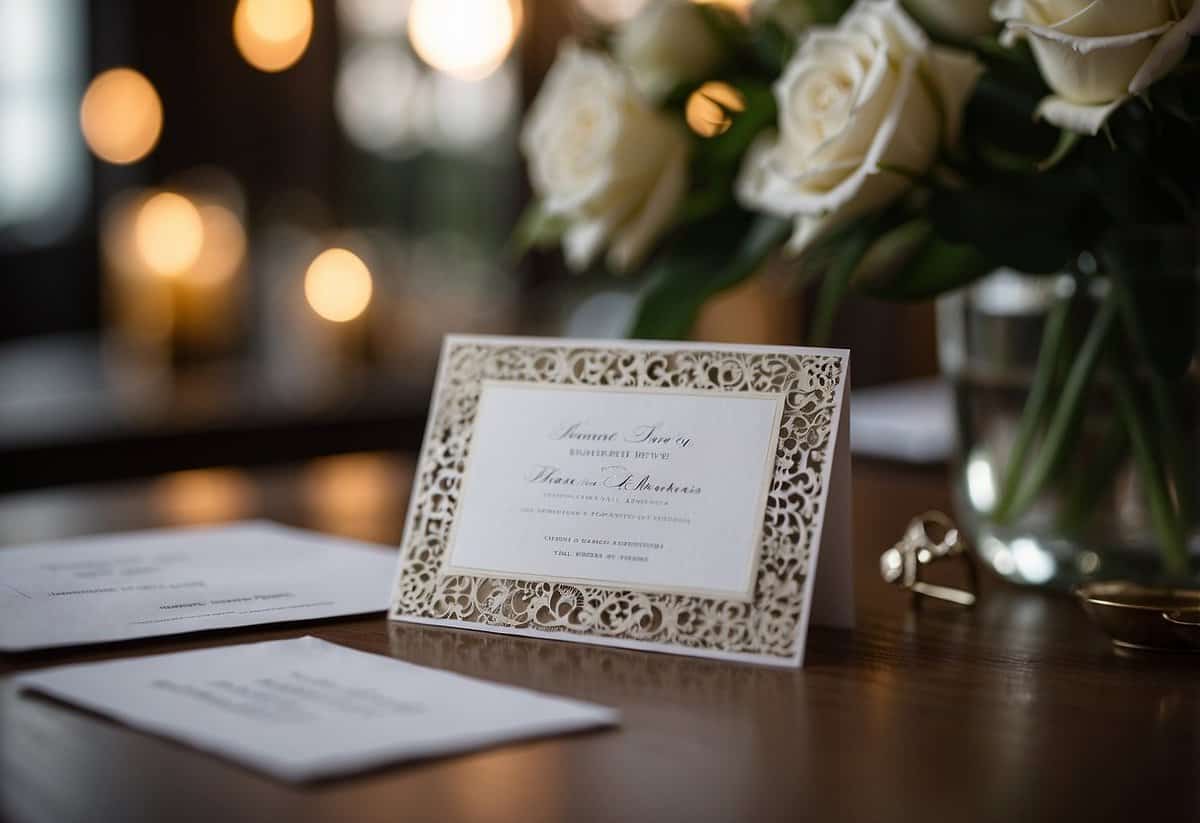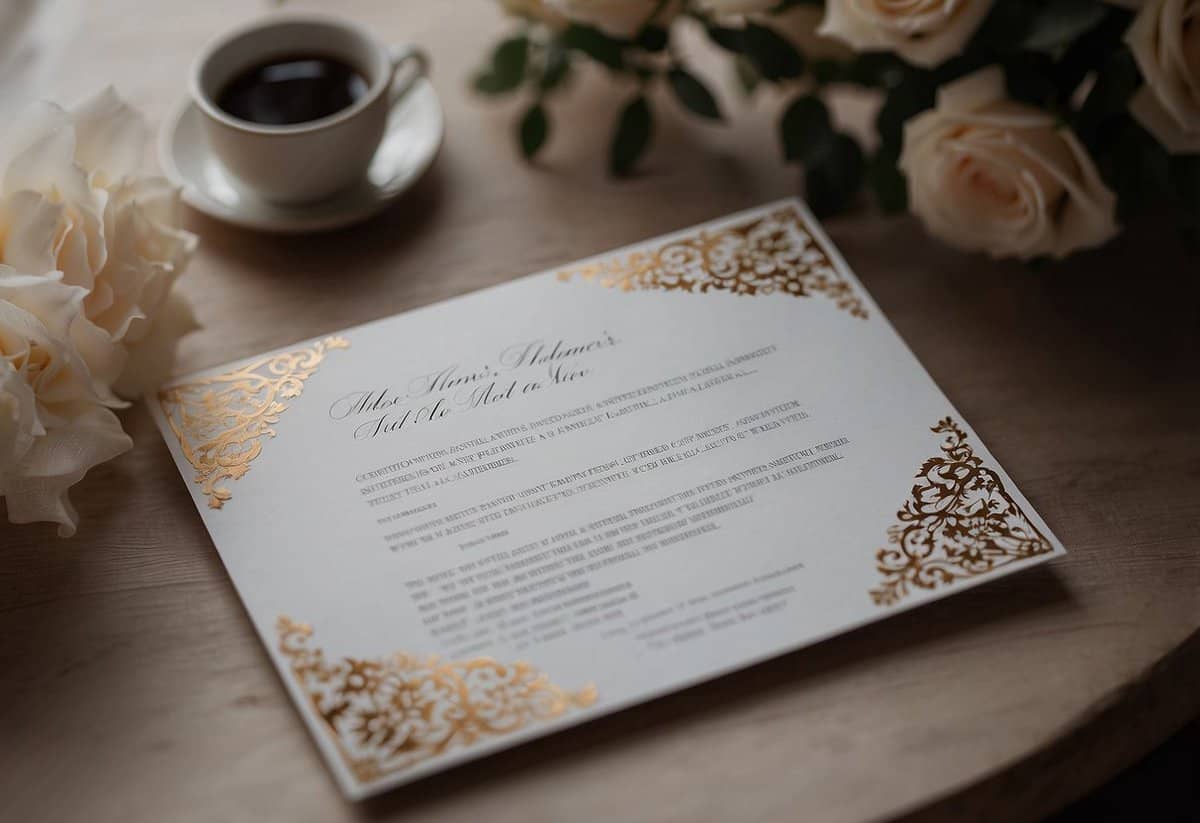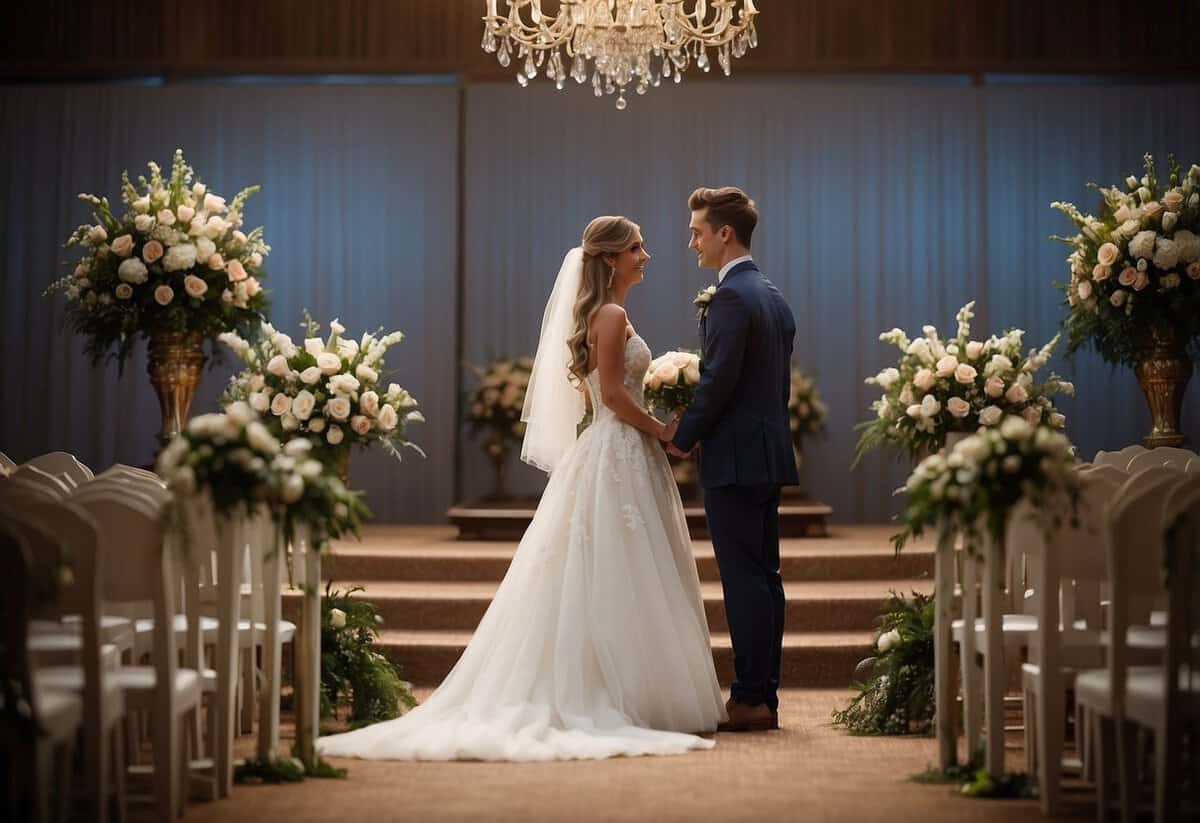Is It Rude to Not Go to a Friend’s Wedding? Understanding Social Etiquette
Attending a wedding is a special and personal event, but life can sometimes get in the way. You might be wondering, is it rude to not go to a friend’s wedding? The simple answer is no, it’s not necessarily rude. There are many reasons why you might be unable to attend, and it’s important to be honest with yourself and your friend.

When you can’t make it to a wedding, it’s essential to handle the situation with care. Let your friend know as soon as possible and explain your reasons. Good etiquette involves being honest yet gentle with their feelings. Skipping the event doesn’t have to mean the end of your friendship, especially if you communicate thoughtfully.
Remember, each situation is unique, and your friend is likely to understand if you genuinely can’t be there. Life is full of unexpected events, and sometimes missing a wedding is unavoidable. Showing your support in other ways can also keep your relationship strong.
Understanding Wedding Etiquette

Wedding etiquette helps ensure that guests and couples know how to navigate the big day smoothly. Key areas include RSVPing on time, understanding the guest list, and knowing how to handle plus-one invitations.
The Role of RSVP
RSVPs are crucial for planning. When you receive a wedding invitation, responding by the given deadline shows respect for the couple’s preparations.
Failing to RSVP can cause problems. The couple needs an accurate headcount for seating, catering, and other logistics. Even if you can’t attend, replying promptly avoids confusion and helps the couple finalize details.
Sometimes, unexpected situations arise. If you must change your RSVP response, update the couple as soon as possible. Clear communication is appreciated and helps them adjust their plans.
Guest List Considerations
Crafting a guest list involves balancing space, budget, and relationships. If you’re invited, it means the couple values your presence. Being mindful of this can guide your decisions.
If you’re unsure why you didn’t receive an invitation, consider the couple’s constraints. They might have limited capacity or budgetary reasons. It’s best to accept this graciously without taking it personally.
On the other hand, if you do get invited, attending supports your friend’s celebration. If you can’t make it, offering a thoughtful explanation can maintain your relationship without causing hurt feelings.
Plus-One Protocol
Understanding plus-one etiquette is also key. Invitations usually indicate whether you can bring a guest. If the invitation is addressed only to you, assume it’s not extended to an additional guest.
If plus-ones are allowed, confirm your guest’s attendance early. This helps with seating and catering arrangements. Always respect the invitation’s guidelines about plus-ones to avoid awkward situations.
If you’re unsure whether a plus-one is allowed, it’s polite to check with the couple. Following these protocols shows respect for the couple’s wishes and helps the event run smoothly.
By adhering to these wedding etiquette guidelines, you contribute to a pleasant and well-organized celebration for everyone involved.
Evaluating Your Reasons for Not Attending

Deciding not to attend a friend’s wedding can be tough. Here are some factors you should consider to help you make the best decision.
Budget and Financial Constraints
Attending a wedding can be expensive. You might need to buy a gift, a new outfit, or even pay for travel. If these costs put a strain on your finances, it’s okay to feel hesitant. Weddings can sometimes have high costs, especially if you’re also contributing as a guest.
If money is tight, think about your essential expenses first. Prioritize rent, bills, and groceries over the cost of attending the wedding. You don’t want to fall behind on your finances because of one event. It’s alright to politely explain to your friend that budget constraints are the reason you can’t attend.
It can be helpful to look at past months’ spending to see if attending the wedding fits within your budget. Using this practical approach could make your decision easier and show your friend that your choice is based on careful consideration.
Prior Commitments
Sometimes, you might already have something important planned on the wedding day. This could be a family event, a work obligation, or a prior engagement that you cannot cancel. Identifying these prior commitments is crucial as they could be non-negotiable.
Make a list of your scheduled activities. Consider if they can be rescheduled or adjusted. If your commitment is set in stone, explain this to your friend clearly and early. It’s always better to inform them sooner rather than later so they can adjust their guest list if needed.
Respect your own time and obligations. Your friends should understand that sometimes life’s responsibilities can interfere with attending social events.
Travel and Distance Challenges
Traveling long distances for a wedding can be challenging. Whether it’s the cost of airfare, long hours on the road, or finding accommodations, these factors might make it unreasonable to attend. Evaluate how the distance impacts your ability to join.
Consider if you can afford the travel expenses. Check airline prices, gas costs, and hotel rates. Look at how much time off you would need from work or school. Weigh these factors to decide if it’s feasible.
Sometimes the trip might be too much to handle practically. In these cases, explaining to your friend about distance and travel hurdles can help them understand why you may not be able to attend.
Communicating Your Decision

When you decide not to attend a friend’s wedding, it’s important to communicate your choice with care. This ensures your friendship stays intact and you respect the event’s significance.
How to Decline Politely
Start by communicating your decision as soon as possible. Delaying can cause unnecessary stress for the bride and groom.
Be honest and tactful with your explanation. Mention your prior commitment or personal emergency if applicable. Focus on your feelings without criticizing the wedding.
Example phrases:
- “I’m really sorry, but I have a prior engagement on that date.”
- “Unfortunately, I won’t be able to attend due to personal reasons.”
Make sure your tone is kind and respectful. If possible, decline in person or via a phone call rather than email or text. This adds a personal touch to your message and shows you care.
Alternative Ways to Celebrate
If you can’t attend the wedding, find other ways to celebrate with your friend. Suggest meeting up before or after the wedding for a special meal or coffee. This shows your commitment to the friendship.
Send a heartfelt card or a small gift to the couple. This gesture demonstrates you are thinking of them on their special day.
Consider offering help with other wedding-related tasks if you can’t make it to the reception. This could include helping with pre-wedding preparations or sending a thoughtful message on their big day.
By finding alternative ways to celebrate, you maintain your relationship and show respect for their important event.
Impact on Relationships

Not going to a friend’s wedding can affect your relationship with them. How you handle the situation matters a lot. Being open and honest can help maintain the friendship even after declining the invitation.
Maintaining Friendship After Declining
If you decide not to attend a friend’s wedding, communication is key. Explain your reasons honestly. Whether it’s due to financial constraints, scheduling conflicts, or personal discomfort, letting your friend know shows respect.
You can show your support in other ways. Sending a thoughtful gift or a handwritten note can go a long way. Checking in on them before and after the wedding also shows you care. If possible, celebrate their big day with them at another time.
It’s important to acknowledge that your absence might be disappointing. Expressing your genuine regret and making it clear that you value the friendship can help. Small gestures and consistent communication can maintain a strong bond even when you can’t be there in person.
For more advice on how to navigate these situations, check out this detailed discussion on declining a wedding invite.
After the Wedding

After the wedding, it’s still important to show your friend that you care. Sending a thoughtful gift and finding ways to celebrate with the couple post-event can make up for not attending.
Sending a Thoughtful Gift
Even if you couldn’t make it to the wedding, sending a thoughtful gift goes a long way. Choose something meaningful or useful for the married couple. Handwritten notes can also add a personal touch.
Consider their interests. For instance, if they love cooking, a set of high-quality kitchen tools or a personalized cutting board might be appreciated. If they’re travel enthusiasts, luggage tags or a gift card for a romantic getaway could be ideal.
Many couples have a wedding registry, so checking there first makes it easier to find something they actually want or need. Remember to include a heartfelt message in your card, acknowledging that you wish you could have been there and are excited to celebrate their future together.
Celebrating with the Couple Post-Event
Celebrating with the couple after the wedding is another way to show your love and support. Plan a small get-together or dinner to congratulate them on their new chapter.
This could be an intimate dinner at their favorite restaurant or a casual brunch at home. Bringing a small gift or flowers can add a special touch. Sharing a meal or just spending quality time together allows you to express your happiness for them in a more private setting.
Take this opportunity to ask about their wedding day, listen to their stories, and look at photos together. It helps you share in their joy and lets them know you care about their special moments.



